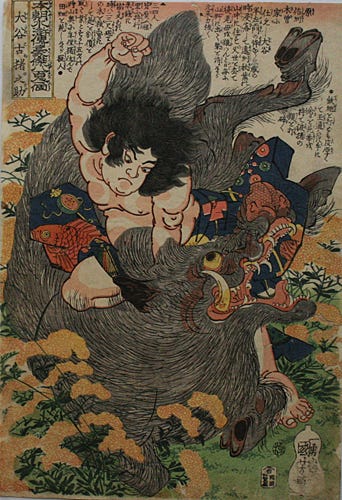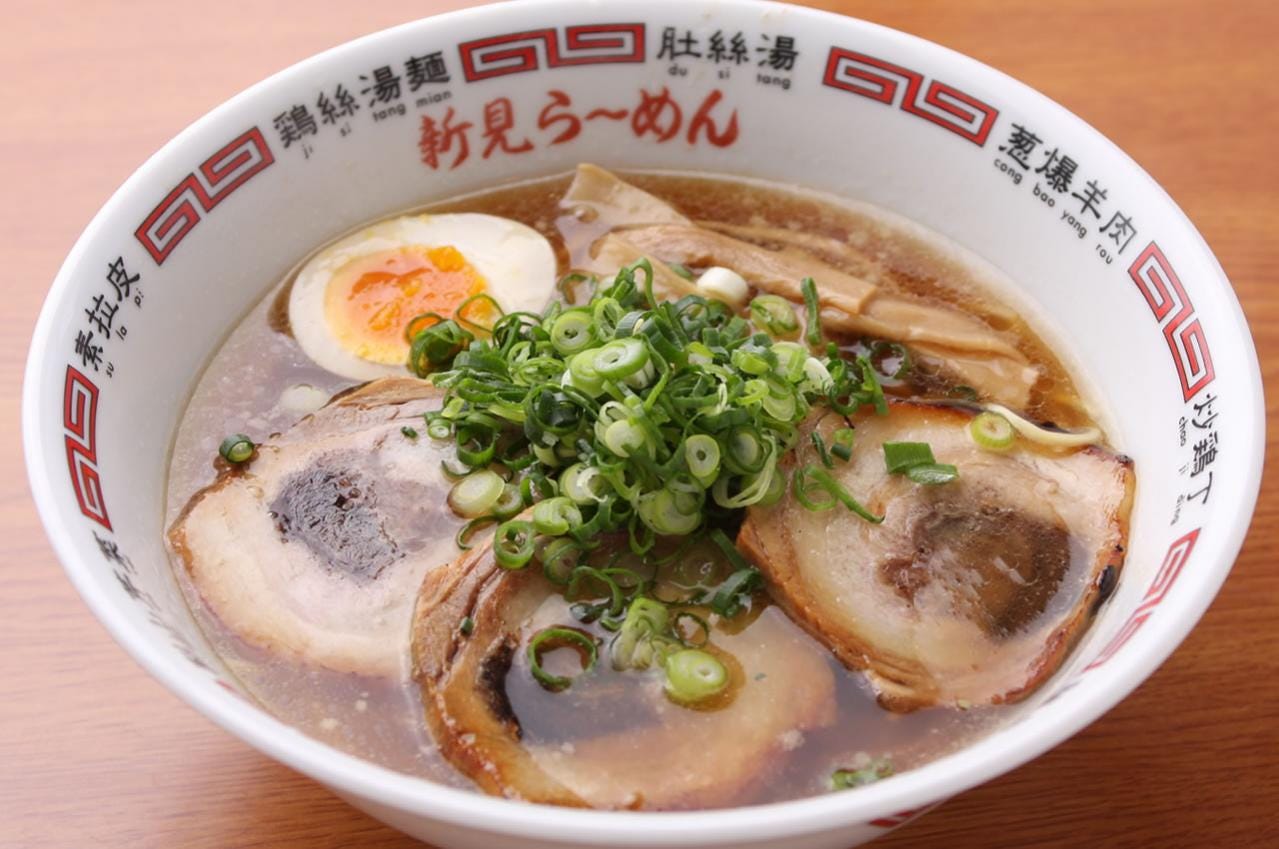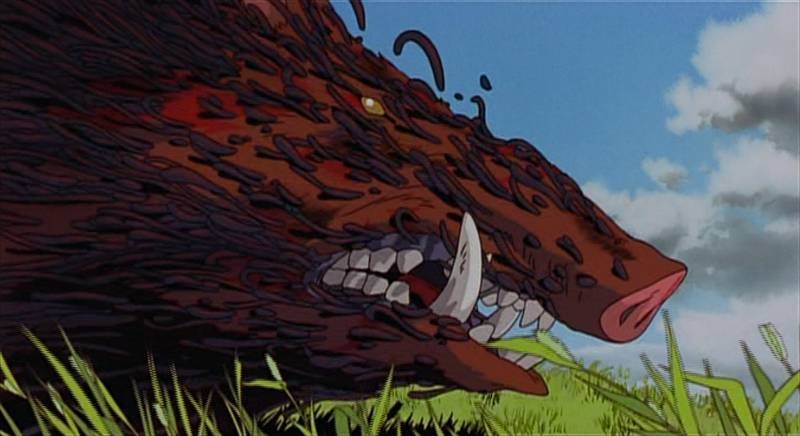In a given language, the sounds or even the looks of some words really fit what they describe. “Cockroach” in English is truly creepy, don’t you think? You just see the word cockroach and you can hear the thing click-clacking around as it tries to jump/scurry across your room.
“Die, you cockroach! (swat)”
“Missed me! (click clack)”
Cockroaches. Ewwwww. You know nests of them are hiding behind your refrigerator in a dark crevice as they breed thousands of cockroach babies. Grab the DDT!
“Spider” is also a great word in English. An awful, spindly, crawly thing that makes webs. Webs! Is there anything more disgusting than shooting webs around?! “Spider” truly sounds like a fuzzy bug with 18 legs and 12 eyes that crawls upside-down on your ceiling. Blech.
The Japanese have come up with some good names, but their word for spider isn’t one of them. Here spiders are called…kumo. I don’t know, but kumo sounds kinda squee and adorable. In my world, a character in a Sega-inspired anime would be named Kumo-Chan. He would have big droopy sweet eyes and tufts of cuddly orange fur. Kumo-Chan speaks in a high-pitched baby voice and loves chocolate chip cookies. He’s likely Pikachu’s best friend.
SIDE NOTE: Japanese defend just about any bug. I mention that I hate kumo, will dispatch them on sight, and invariably I’m met with “Oh but kumo are good. They eat mosquitos!” Or some other cultural half-truth. Look, Satoshi, I don’t care if a kumo eats a million times his own weight in bugs a day, he’s gonna be mashed by my rolled up New Yorker magazine right now.
Big digression right off the bat. Sorry about that. I was thinking about word descriptiveness the other day because I was chatting about wild animals with an old villager. He started talking about the danger of local inoshishi, which is Japanese for wild boar.
I thought, damn. Inoshishi is one great word.
“Boar” in English is interesting and it certainly sounds yummy to eat in a stew, but I don’t get even a vague sense of danger and recklessness from either the look or the sound of that word.
Inoshishi are violent, scavenging mountain pigs. In some dialects they even call them yamakujira here, which means mountain whales. The Japanese acknowledge the danger of these feral hogs.
Say the word inoshishi and right away I’m transported in my mind’s eye to a remote island jungle. I’m running for my life. I glimpse a blur of brown wire hair at my heels, as the foaming-at-the-mouth, TUSKED beast chases my ass down. He squeals with delight as he sinks teeth into my thigh.
I will never survive anything called an inoshishi.
“It’s awful. Jack died by inoshishi.”
“Oh my goddd.”
Kumo-Chan is an inane fluffy character sold in game arcades. Inoshishi will take off both of a man’s legs just because he’s got nothing better to do.
When the daylight wanes out here at Frog’s Glen, I begin to fear inoshishi. I look at those densely packed brush-and-bamboo-covered hills surrounding our village and know those tusked fellas are deep in the shadows right now eyeing me, my yard, my dog…they are weighing their chances of mowing us down.
“We can take that guy.”
“No doubt.”
“I mean, he drives a Yaris and…wait. I think that’s a whippet!”
“Hahahahahahahahahahahah!”
Word is the inoshishi are slowly starving up in those hills. They don’t have enough of their natural diets to eat so increasingly are spotted descending into the valleys at night to pilfer what they can from us.
They wait for the dark to make their moves. You’d best not attempt to hinder them, unless you have a loaded weapon. Lead stops inoshishi; yelling humans or barking dogs just make them hungrier.
Except for Hokkaido and Okinawa, the islands of Japan are rife with these animals. And despite their hunger, populations of inoshishi are reportedly surging as their only natural predator, the Japanese wolf, is thought to be extinct.
There have been calls to selectively reintroduce the wolf to Japan—to help curtail the inoshishi—but understandably the humans living out in these parts aren’t too hot on the idea of hiring wolves as security guards. Can’t say I blame them.
Last Sunday late afternoon I was out walking Terashima. There’s a smaller village to the north of us, and as we were rounding its tiny community bulletin board we ran into an old man I haven’t seen before. He was walking his dog…of course a Shiba on a long rope.
The man had a full head of white hair, and a big smile with one shiny gold tooth in front. Only after we spoke a few minutes did I realize he was wearing pajama bottoms that were wide open in the fly. I didn’t have the heart to do the “XYZ” thing.
“Be careful up that road,” he said as he gestured in the direction I was returning from. “Inoshishi come out of the woods up there like you won’t believe.”
I said ahhhhh I thought so. “Every time I go up there with my dog I turn around after several hundred yards. It gets so quiet and I start imagining the pigs running out at us.”
The man said the animals are actually nuts. For no discernible reason, they charge white-eyed and tusks low. I said I was scared more for my dog than for myself. “He’s a whippet. I think an inoshishi would do away with him in seconds.”
The man laughed. “Oh yeah. Sorry, but your dog would be finished.” Terashima looked up at him with eyes the size of half dollars and an expression that said I think you’re right, mister.
Probably to make me feel better, the man added, “Mine too. My dog couldn’t stand up to one of those pigs either, believe me. Mincemeat.”
Hunters in our valley report they shot or trapped over 300 inoshishi in the last reporting period…which I think was only a month or two. I was stunned at the number. All those tuskies up in the bamboo, sniffing our old pizza boxes in the wind.








I’ve seen them in my garden and given up trying to grow potatoes and peanuts because of them.
Brilliant writing! And that whippet, he can RUN!!